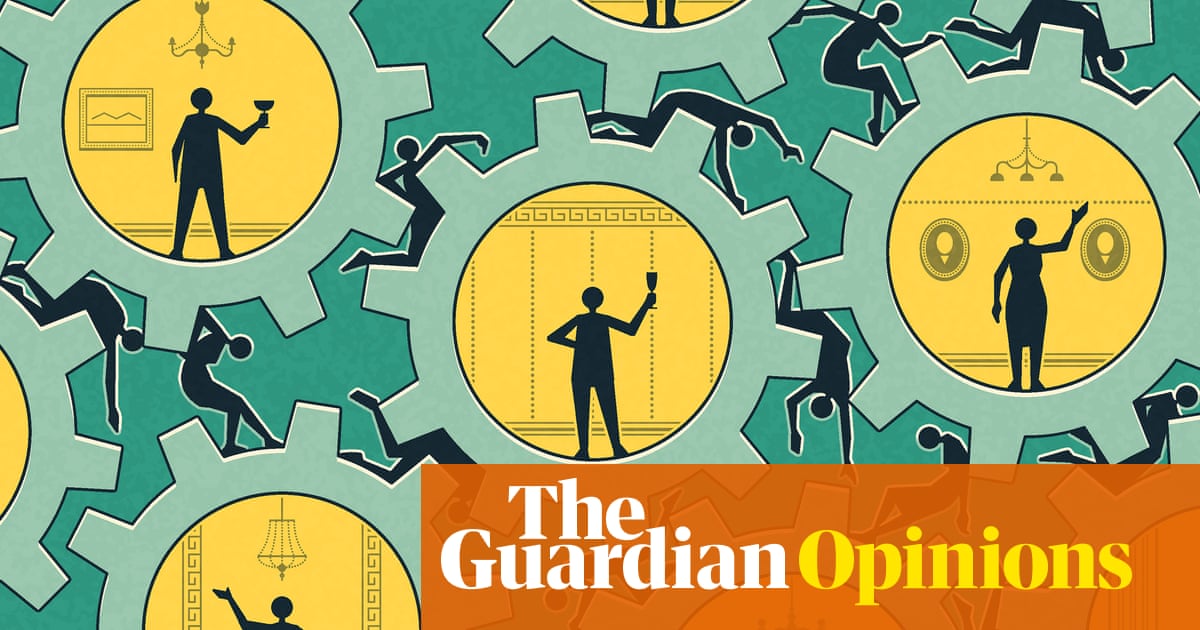Once again, it’s the Hinduja family. Gopi Hinduja and his family, who run the Hinduja Group, arecitedas Britain’s richest family in the latest Sunday Times rich list. The big story so far seems to be that their wealth has dropped to £35.3bn from £37.2bn the year before. But that story, and much of the discussion there will be this weekend, risks missing therealstory. “Rich list” is barely the right description for the extreme wealth we should be talking about.
In 1989, when the Sunday Times first published its annual rich list, to be included someone would need to have 6,000 times the wealth of the average person in the UK. That’s already a pretty big gap – but this has now tripled to more than 18,000 times the average, according toa studyby the University of Greenwich.
The problem is that wealth begets wealth. Those who own land, property and shares have seen huge returns on these investments and been able to accumulate more assets over time, generating even more returns. To make things worse, while income inequality can be tempered by measures like a minimum wage or progressive taxes, policymakers seem unable or unwilling to do anything about wealth accumulation.
Successive governments have claimed to be for “working people” but have turned a blind eye to the fact that most wealth accumulation in recent decades has been through the passive collection of returns on existing wealth, rather than earned through hard work or entrepreneurial brilliance. Worst of all, there is no upper limit on how much an individual or family can acquire. Instead, we are asked to celebrate the vast fortunes of the super-rich and watch passively as we hurtle towards the world’s first trillionaires. One thing that could help curb the excesses of wealth inequality is an “extreme wealth line”, an idea that is starting to gain traction among campaigners and policy experts.
Decades ago, economists at the World Bank formulated an extreme poverty line by calculating how much money someone would need to buy enough food and essentials to survive each day. That innovation helped us compare poverty across countries and eras, and helped policymakers prioritise interventions to reduce poverty. It was also an ethical statement: the point below which a society should not let any household fall.
Today, I believe we need an equivalent line for the other end of the spectrum: the point above which a society should not let any household accumulate wealth, and above which policymakers should act proactively to curb wealth accumulation.
There is a point above which wealth gives you too much power to shape politics through lobbying, party donations or freebies, just as there is a point above which the environmental impacts of super-rich lifestyles cause extreme harm to the environment. And a point above which wealth concentration undermines economic competition and reduces productive investment. Meanwhile, rising inequality tears at the social fabric that binds us together. We risk becoming an island of have-yachts and have-nots, rather than an island of strangers.
This is where it gets tricky. If you ask what that point is, you get a range of answers. Is it when someone becomes a billionaire? Is it the top 1% of wealth holders? Is it €10m, the suggestion made by the Dutch writer Ingrid Robeyns in her excellent bookLimitarianism: The Case Against Extreme Wealth?
Here’s where the work done by the compilers of the rich list to tot up the value of land, property, shares and “other assets such as art and racehorses” of the super-rich might come in handy. Turns out you need net assets of £350m to make it into this year’s list. I’m not sure whether they intended it, but this is about 1,000 times the medianhouseholdwealth in Great Britain. Interestingly, a recent surveyfoundnearly two-thirds of millionaires from G20 countries think wealth poses a risk to society when someone has 1,000 times the societal median. Even the rich think there is a line.
I would love to put these options to a citizens’ assembly and ask a representative sample of British people to consider the evidence, hear the arguments, and come up with a point above which wealth should be considered extreme. Without some kind of independent understanding of when wealth becomes harmful, there will be the option to obfuscate, impede and nullify attempts to rein in extreme wealth harms.
Finding a democratic way of defining an extreme wealth line could finally give politicians the mandate and a framework to tackle inequality before it is too late. It would give the chancellor a solid rationale for raising tax rates on those whose wealth exceeds the line. If she is not prepared to go that far, tax and inheritance rules could be changed to compel the rich to donate wealth above the line to charity. If even that feels too audacious, government could limit the inheritance that any nepo baby could have to below the extreme wealth line.
Last week Bill Gatespledgedto give away 99% of his fortune, quoting an 1889essay(The Gospel of Wealth) by tycoon Andrew Carnegie, who wrote: “The man who dies thus rich dies disgraced.” This is admirable, but it is naive and dangerous for society to rely on the enlightened philanthropist to curb inequality. We need to stop glorifying wealth through rich lists and start drawing a line on extreme wealth.
Dhananjayan Sriskandarajah is chief executive of the New Economics Foundation and author of Power to the People
